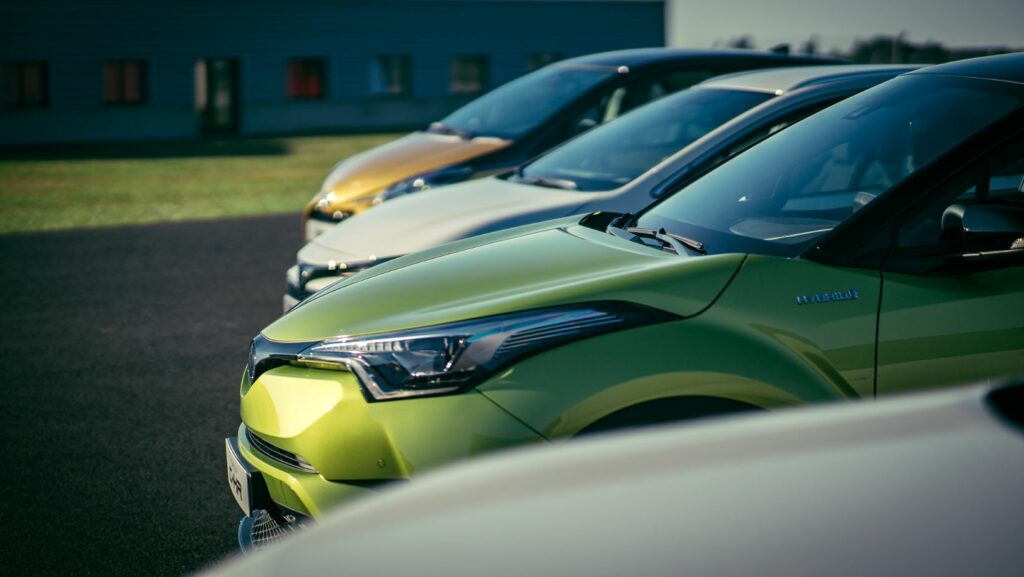In the ever-evolving world of technology, connected cars are driving us towards a future of increased efficiency and sustainability. They’re not only transforming our driving experience but also playing a pivotal role in reducing our carbon footprint.
This article explores the sustainability of connected cars, shedding light on their potential to revolutionize the automotive industry. From their environmental impact to their role in the smart cities of the future, we’ll delve into how these high-tech vehicles are paving the way for a greener planet.
So, fasten your seat belts and get ready to journey into the world of connected cars – a world where technology and sustainability go hand-in-hand.
Paving the Way for Sustainability: The Development of Efficient Green Cars
 Connected Cars represent a significant leap in the automotive world. They blend sustainability and technology, leading the charge for a more eco-friendly planet. Connected cars employ cutting-edge technology to interact with their environment. They utilize sensors to collect data, and then transmit this information via the Internet. In essence, these cars resemble mobile devices on wheels. They’re equipped with modern features like GPS, voice recognition, and even Wi-Fi. Communication technology, such as V2X (Vehicle to Everything), allows them to interact with things like traffic signals, other vehicles, and any smart device that’s part of the Internet of Things (IoT).
Connected Cars represent a significant leap in the automotive world. They blend sustainability and technology, leading the charge for a more eco-friendly planet. Connected cars employ cutting-edge technology to interact with their environment. They utilize sensors to collect data, and then transmit this information via the Internet. In essence, these cars resemble mobile devices on wheels. They’re equipped with modern features like GPS, voice recognition, and even Wi-Fi. Communication technology, such as V2X (Vehicle to Everything), allows them to interact with things like traffic signals, other vehicles, and any smart device that’s part of the Internet of Things (IoT).
In this day and age, connectivity in vehicles takes several forms. Infotainment connectivity, for example, provides vehicles with entertainment and information features that were unheard of in the past. Drivers get weather updates, real-time traffic information, and music streaming services at their fingertips.
The Environmental Impact of Connected Cars
 Connected cars’ journey towards sustainable future is multifaceted. They pave the way for minimizing environmental impact through efficient routing and promoting electric vehicle integration. Connected cars leverage advanced GPS technology, enabling them to choose the most efficient routes. This efficient routing plays a significant role in reducing carbon emissions from cars. By avoiding traffic jams or taking shorter routes, these cars use less fuel. More importantly, fuel-efficient driving supports in curbing greenhouse gas emissions. For instance, cars with embedded connectivity might avoid heavily congested routes, which often results in idling—a significant contributor to air pollution.
Connected cars’ journey towards sustainable future is multifaceted. They pave the way for minimizing environmental impact through efficient routing and promoting electric vehicle integration. Connected cars leverage advanced GPS technology, enabling them to choose the most efficient routes. This efficient routing plays a significant role in reducing carbon emissions from cars. By avoiding traffic jams or taking shorter routes, these cars use less fuel. More importantly, fuel-efficient driving supports in curbing greenhouse gas emissions. For instance, cars with embedded connectivity might avoid heavily congested routes, which often results in idling—a significant contributor to air pollution.
Impact on Electric Vehicle Integration
Connected cars’ impact goes beyond efficient routing— they are integral to the successful integration of electric vehicles (EVs) on the roads. They offer a seamless user experience, a vital factor for EV adoption. Advanced features like real-time charging station locations and availability, optimal energy consumption based on route and driving behavior, and remote monitoring of charging status aid in facilitating the EV transition. For instance, telematics systems in connected cars can predict when an EV will run out of charge, and recommend the nearest charging station, ensuring uninterrupted journeys. In short, connected cars, with their smart capabilities, are accelerating the march towards a more sustainable and cleaner future.
Sustainability Benefits of Connected Cars
Connected cars deliver significant sustainability benefits, shaping the future of transport. They transform the environmental prospects of our planet, promoting efficient fuel utilization, and amplifying emergency responses.
Improved Traffic Management and Fuel Efficiency
 Connected cars enhance traffic management. Through features like GPS and V2X communication, these vehicles offer optimized routing, mitigating traffic congestion. Congestion reduction, in turn, leads to reduced idle time in traffic, thereby conserving fuel and lowering carbon emissions.
Connected cars enhance traffic management. Through features like GPS and V2X communication, these vehicles offer optimized routing, mitigating traffic congestion. Congestion reduction, in turn, leads to reduced idle time in traffic, thereby conserving fuel and lowering carbon emissions.
For example, the European Commission reports that efficient traffic management leads to reductions of 10% in travel time, in turn reducing fuel consumption by approximately 20%.Further, these vehicles facilitate smooth integrations with electric vehicles (EVs), offering real-time charging station locations and remote monitoring of charging statuses. This alleviates ‘range anxiety’ for EV owners while encouraging a widespread switch to electric mobility.
Connected cars equip emergency services with advanced capabilities, aiding in faster response times. Features such as Automatic Crash Notification (ACN) send immediate alerts to local emergency services in the event of a collision. Similarly, with V2I communication, traffic clearances are efficiently managed, allowing emergency vehicles swift and unimpeded access to incident locations.



